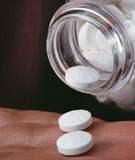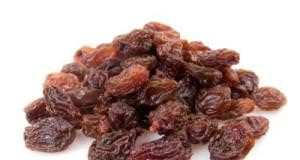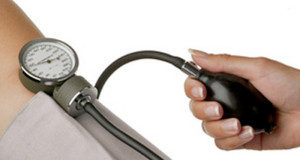Poor Sleep Quality Increases Risk of High Blood Pressure
Reduced slow wave sleep (SWS) is a powerful predictor for developing high blood pressure in older men, according to new research in Hypertension: Journal of...
Benefits Of Nut Consumption For People With Abdominal Obesity, High Blood...
For the first time, scientists report a link between eating nuts and higher levels of serotonin in the bodies of patients with metabolic syndrome (MetS), who are at high risk for heart disease. Serotonin is a substance that helps transmit nerve signals and decreases feelings of hunger, makes people feel happier and improves heart health. It took only one ounce of mixed nuts (raw unpeeled walnuts, almonds and hazelnuts) a day to produce the good effects.
Prolonged Fructose Intake Not Linked to Rise in Blood Pressure, Study...
Eating fructose over an extended period of time does not lead to an increase in blood pressure, according to researchers at St. Michael's Hospital. A new study has found that despite previous research showing blood pressure rose in humans immediately after they consumed fructose, there is no evidence fructose increases blood pressure when it has been eaten for more than seven days.
Aspirin As Good As Plavix For Poor Leg Circulation: Study
Aspirin works as well as Plavix in patients with blocked leg arteries, a new European study finds. People with the condition, called peripheral artery disease, often suffer from intermittent claudication, which is pain while walking because of decreased blood supply to the legs.
Snacking On Raisins May Offer A Heart-Healthy Way To Lower Blood...
If you have slightly higher than normal blood pressure -- known as prehypertension -- consider eating a handful of raisins. New data suggest that, among individuals with mild increases in blood pressure, the routine consumption of raisins (three times a day) may significantly lower blood pressure, especially when compared to eating other common snacks...
Eating Flavonoids Protects Men Against Parkinson’s Disease, Study Finds
Men who eat flavonoid-rich foods such as berries, tea, apples and red wine significantly reduce their risk of developing Parkinson's disease, according to new research by Harvard University and the University of East Anglia. Published April 4 in the journal Neurology®, the findings add to the growing body of evidence that regular consumption of some flavonoids can have a marked effect on human health.
Big Doses Of Vitamin C May Lower Blood Pressure
Taking large doses of vitamin C may moderately reduce blood pressure, according to an analysis of years of research by Johns Hopkins scientists. But the researchers stopped short of suggesting people load up on supplements. "Our research suggests a modest blood pressure lowering effect with vitamin C supplementation, but before we can recommend supplements as a treatment...
Soda Consumption Increases Overall Stroke Risk
Researchers from Cleveland Clinic's Wellness Institute and Harvard University have found that greater consumption of sugar-sweetened and low-calorie sodas is associated with a higher risk of stroke. Conversely, consumption of caffeinated or decaffeinated coffee was associated with a lower risk.
Even Small Weight Gains Raise Blood Pressure In College Students
As a college student, you may be happy simply not to have gained the "Freshman 15." But a University of Illinois study shows that as little as 1.5 pounds per year is enough to raise blood pressure in that age group, and the effect was worse for young women.
Mini-Strokes Leave ‘Hidden’ Brain Damage
Each year, approximately 150,000 Canadians have a transient ischemic attack (TIA), sometimes known as a mini-stroke. New research published January 28 in Stroke, the journal of the American Heart Association shows these attacks may not be transient at all. They in fact create lasting damage to the brain.
Yogurt Consumption, Blood Pressure, and Incident Hypertension
Adding more yogurt to your diet without increasing the number of calories you eat may help lower your risk of high blood pressure, according to new research presented at the American Heart Association's High Blood Pressure Research 2012 Scientific Sessions.
Relaxed Guidelines Relieve Millions of Need for Blood Pressure Medications
New guidelines that ease the recommended blood pressure could result in 5.8 million U.S. adults no longer needing hypertension medication, according to an analysis...















